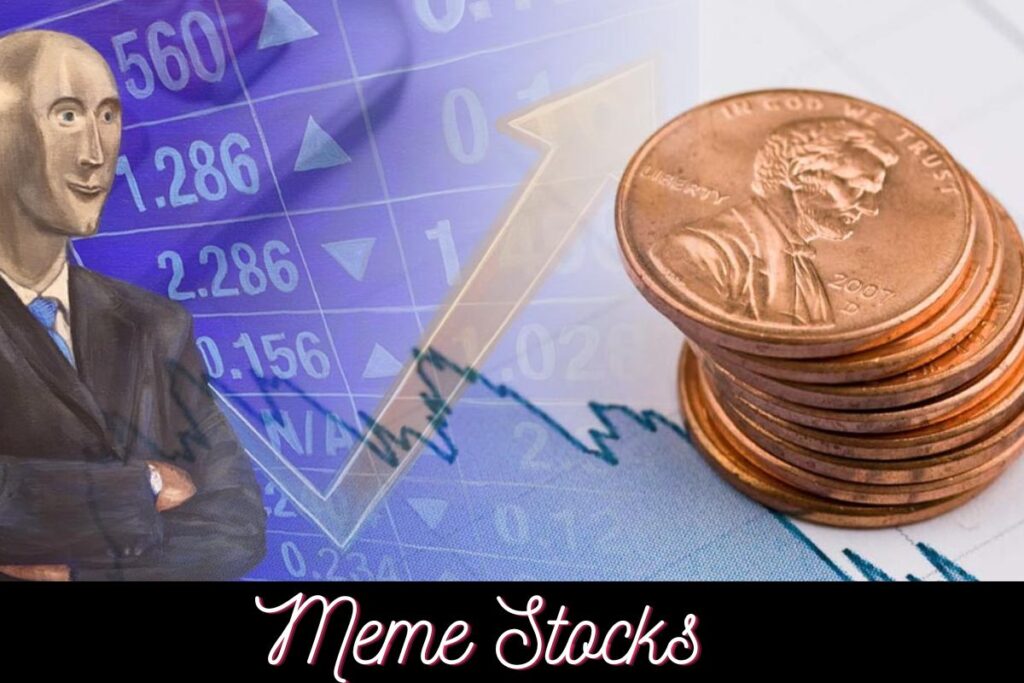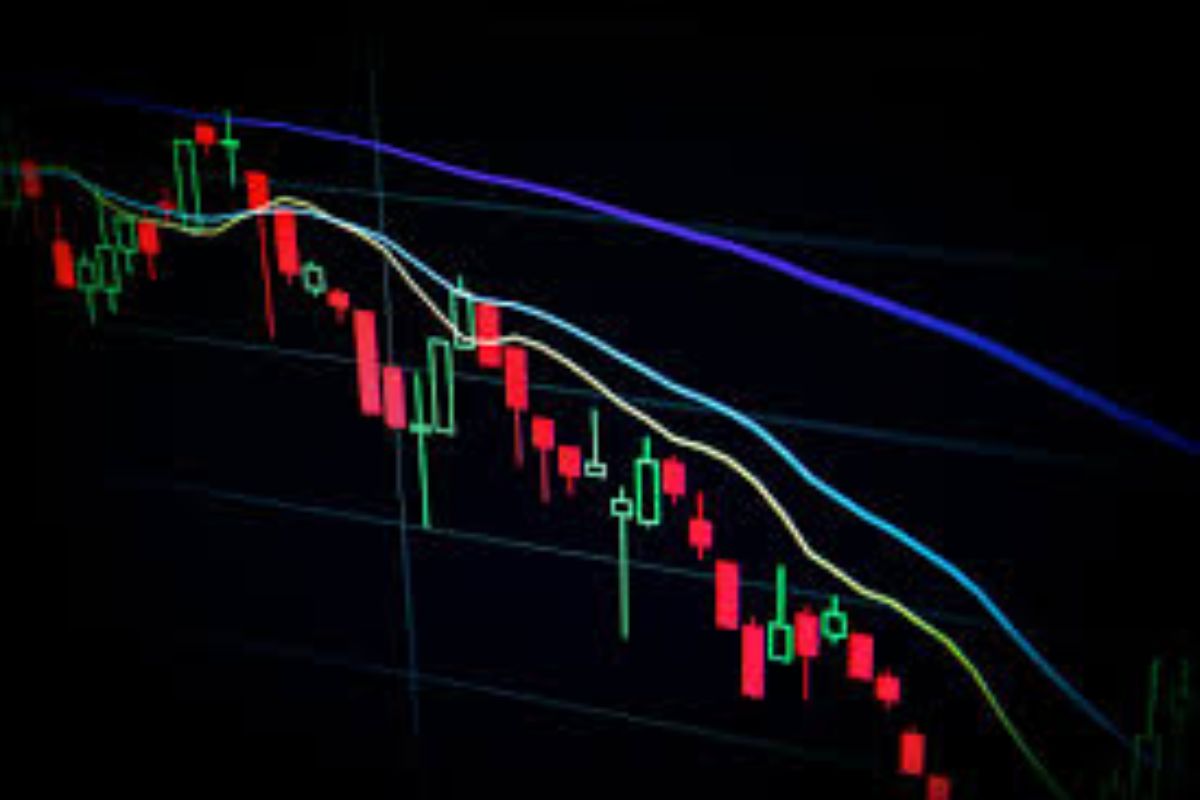Meme stocks are shares of a firm that have become so popular among internet users that they are often discussed in the same breath as the company itself. These groups can then use the narratives and conversations elaborated in Reddit threads and posts to followers on social media platforms like Twitter and Facebook to generate widespread interest in a stock.
By working together, meme stock communities can have a significant impact on the share prices of meme stocks by, for instance, causing short squeezes in heavily shorted names. Consequently, the meme stock community can keep the price of a company artificially high for lengthy periods, even if it has become overvalued relative to its fundamentals.
“diamond hands” (strong hands that will not sell even on dips), “tendencies” (profits, facetiously referring to how many chicken tenders one can buy with them), and “to the moon” are just a few examples of the informal language and market lingo that have emerged within the stock forums (anticipation of extremely above-average returns).
Contents
Understanding Meme Stocks
A meme is a mental construct, such as a joke or piece of music that quickly becomes contagious online and in social circles. As the reach of the internet and social media expanded, people were better able to share and disseminate amusing, thought-provoking, or caustic films, photographs, or messages with others all over the world at lightning speed. This fueled the rise in popularity and importance of memes. Posts like these might quickly spread across the internet thanks to the multiplicative effect of being shared widely.
Investment and stock promotion-focused online forums and chat rooms emerged alongside the rise of the internet. These sites promoted and inflated the price of “dotcom” stocks in the late 1990s and early 2000s, a bubble that eventually burspectacularlyner.
However, the emergence of meme stocks as we know them today didn’t occur until the year 2020, thanks to the subreddit r/wallstreetbets. WallStreetBets was a messaging board for investors that took a different, often humorous, approach from its forerunners and competitors. Users pool their resources in this and similar forums to find promising stocks, spread the word about them, and ultimately invest in them. Promoting meme stocks is different from online pump-and-dump schemes since it typically entails buying and holding with the aforementioned strong hands even after the price jumps.
GameStop: The First Meme Stock
The YouTuber known as Roaring Kitty in the year 2020 will upload a viral video explaining why GameStop Corp. (GME) stock might increase in value from $5 per share to $50 per share. (Keith Gill, aka Roaring Kitty, used the handle u/deepF…Value on Reddit and frequented the forum r/wallstreetbets.) He stated in the video that hedge funds held the vast majority of short bets in the stock, making it one of the most shorted in the market and that in the case of a significant short squeeze, the funds would have to cover their positions, sending the stock price soaring.
A few days later, Gill announced on Twitter that Ryan Cohen, the ex-CEO of Chewy.com and an investor, had purchased shares of GME for an undisclosed sum.
Cohen’s ten percent stake in the company was made public information in November 2020.
His appointment to the board on January 12 caused a sharp increase in share price. A two-day delay in closure resulted in a doubling in value, an eightfold increase from the price when Cohen and Gill made their earlier posts.
The Roaring Kitty’s predicted short squeeze finally materialized in January 2021, sending GME shares soaring to nearly $500 on a wave of short-covering and panic buying.
Some hedge funds suffered such severe losses that they had to close their doors as a direct result of the squeeze. As a result, the concept of “meme stocks” took on a Robin Hoodia or David versus Goliath vibe, with the former implying that it would rob the wealthy on Wall Street to benefit the latter’s average retail investors.
Other Meme Stocks
GameStop was indeed the pioneering meme stock to go viral, but it wasn’t the last. Users of WallStreetBets were eager to find additional underperforming equities with significant short interest that they could push. Some examples are AMC Entertainment Holdings Inc.’s (AMC) dwindling earnings in the face of the COVID-19 epidemic and Blackberry Limited’s (BB) aging smartphone offerings. Both stocks saw their share prices multiply dramatically.
Special Considerations
Companies have capitalized (in the literal sense) on the meme stock phenomenon, which has benefited retail investors, day traders, and brokerage platforms. AMC Theaters CEO Adam Aron capitalized on the company’s inflated valuation by issuing a string of secondary (follow-on) offerings in 2021, generating over $1.5 billion from new stock buyers in the first quarter of that year.
In 2021, GameStop did the same thing, selling 8.5 million additional shares at an average price of over $200 each to raise approximately $1.7 billion.
After meme stock promoters drove up the price of Bed Bath & Beyond shares in 2022, the firm announced plans to sell 12 million shares in a secondary offering, and the stock promptly plummeted.
Meme Stocks and Short Selling
Meme stocks, especially in their early stages, have been characterized by the prevalence of shorting their names. This indicates that the stock has received significant short interest or that a sizable number of the company’s outstanding shares have been sold short.
When someone engages in short selling, they are selling shares they do not own in the expectation of repurchasing them at a reduced price. A wager on a price decline. To sell, the seller needs to borrow shares from a long shareholder. The number of shares that can be borrowed decreases as more and more are sold short in this way. When stocks become difficult to borrow, even the most dedicated short seller may be rendered helpless.
Short Squeeze
Stocks are sold short using borrowed money (because they involve borrowed shares). To put it another way, the short seller will start losing money as soon as the price of the stock they shorted goes up. A broker may issue a margin call requesting that you deposit funds to offset paper losses, and you must do so promptly.
When a short seller’s funds run out, they may be obliged to terminate the position by buying back shares at a higher price. When several short sellers are forced to acquire stock at once, the price of the stock goes up further because the buyers are bidding up the price. The term “short squeeze” refers to the rapid rise in a stock’s price that occurs when short sellers are obliged to cover their positions or face catastrophic losses.
The GameStop Squeeze
Among the earliest meme stocks, GameStop exemplifies how retail investors can identify a heavily shorted stock and turn it to their advantage through a short squeeze.
Due to falling mall foot traffic and income, GameStop (GME) became a heavily short stock. As a result, there were now more short positions than there were total shares available. Reddit and other investment sites were then used to promote the idea that this could cause a “short squeeze.” Large investors including Michael Burry of Scion Asset Management and Ryan Cohen of Chewy held long stakes.
The price continued to rise as an increasing number of ordinary investors bought shares and call options. Several well-known people, like Elon Musk and venture financier Chamath Palihapitiya, were early buyers, pushing out some short sellers in the process.
The stock price of GameStop then skyrocketed as significant hedge funds that had been shorting the stock were compelled to sell to avoid more losses. During that period, the stock price jumped from below $5 per share to $325 (by January 2021).
Why Are They Called Meme Stocks?
Is There a Meme Stock ETF?
In December of 2021, Roundhill Investments introduced the MEME Exchange Traded Fund (ETF), which is focused on meme stocks. MEME is a portfolio of 25 stocks that are equally weighted based on their popularity on social media and market sentiment. The number of times a company or its ticker is referenced on certain social media sites during a trailing 14-day period is used to calculate a social media activity or “meme” score for eligible shares, with the short interest taken into account. The top 25 of these companies are part of a portfolio that is reviewed and rebalanced twice a month.
Recently developed single-stock ETFs enable investors to take on enlarged long or short holdings in a single company. Meme stocks like Tesla and NVIDIA are among the select few that have been cleared for trading thus far.
Are Meme Stocks Real Investments?
Where Are the Meme Stocks Today?
The stock values of numerous meme companies, which soared to new heights in 2021, have dropped significantly this year. Some, most notably GameStop, are still at relatively high levels, but they are well off their all-time peaks.
The meme stock mania has persisted for several months despite predictions to the contrary. During the summer of 2022, for instance, meme stock groups drove the share price of brick-and-mortar store Bed Bath & Beyond (BBBY) up by 314%, only for it to promptly fall back down again.
There is still a strong likelihood that retail investors will be interested in purchasing the latest meme stock. Younger investors are the most enthusiastic about meme stocks because they are considered a possibility to get large profits quickly. This is especially important now that housing costs and inflation are on the rise. However, retail investors are likely to bear the brunt of the losses when the inevitable crisis does occur, and meme stocks continue to be highly speculative and dangerous.
The Bottom Line
At the beginning of 2021, so-called meme stocks were a popular investment idea among day traders and retail investors, leading to short squeezes on popular stocks including GameStop Corp. (GME) and AMC Entertainment Holdings, Inc. (AMC). Meme stocks are so called because of the widespread interest in them on social media platforms, even though the underlying value of the companies behind them is sometimes called into doubt.
Follow our site serveupdate.com and get all the latest news daily.





